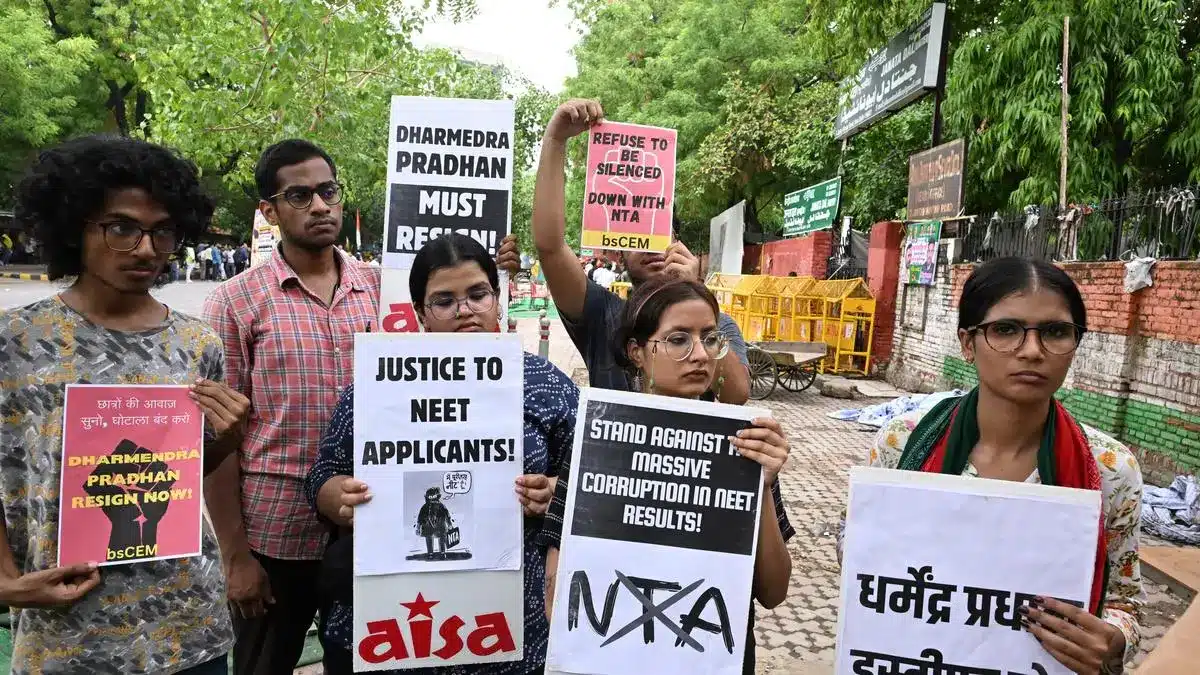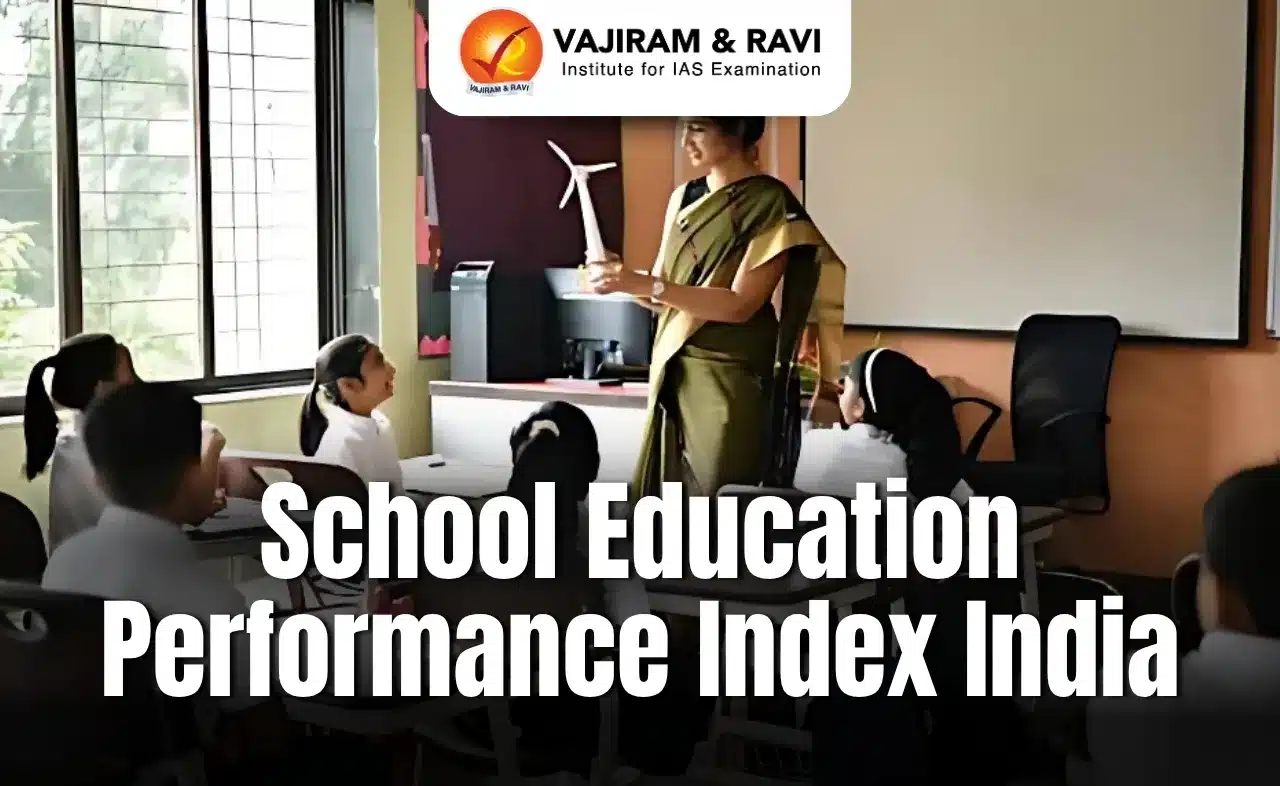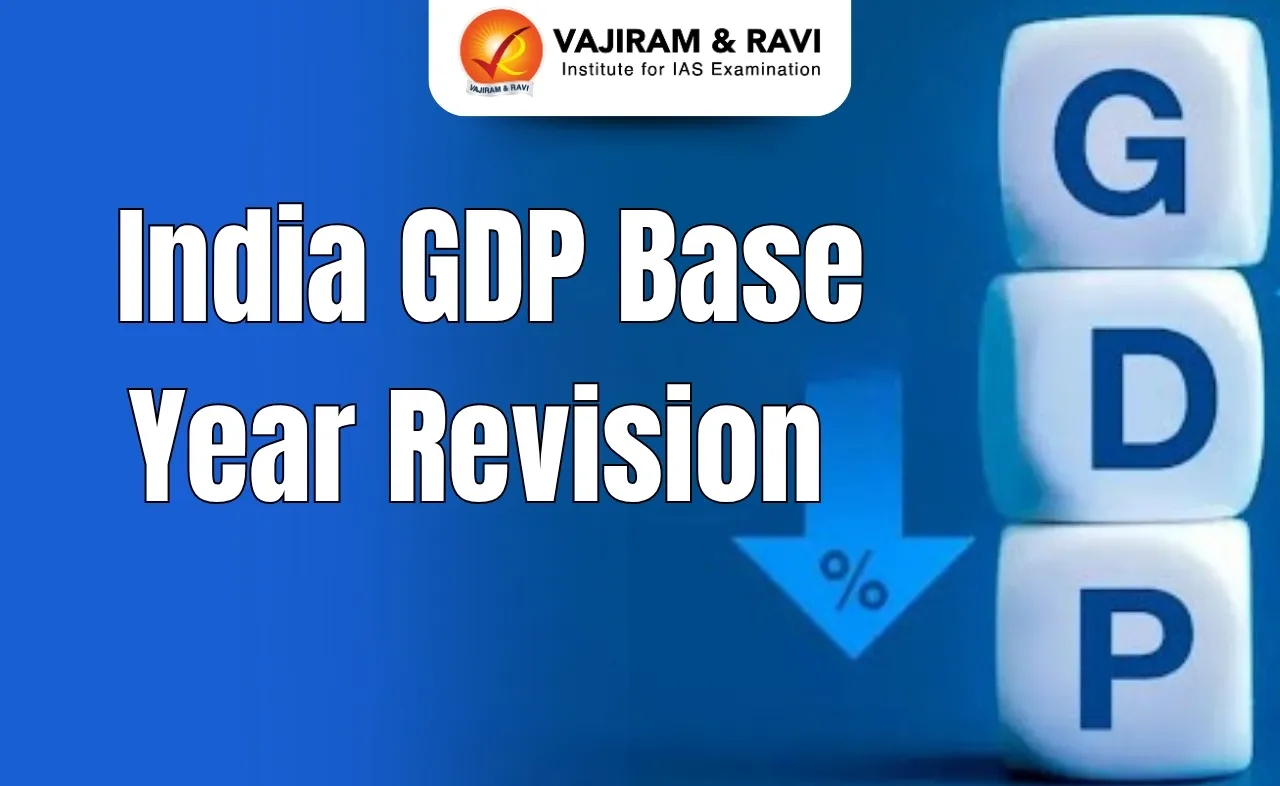What’s in today’s article?
- Why in News?
- The National Testing Agency (NTA)
- Issues Faced by the NTA
- What Needs to be Done to Reform India’s Examination Process?
Why in News?
- With widespread allegations of cheating, paper leaks and other irregularities impacting flagship examinations such as the NEET (National Eligibility cum Entrance Test), the National Testing Agency (NTA) has come under intense fire.
The National Testing Agency (NTA):
- Background:
- In 2010, a committee comprising directors of IITs recommended establishing an autonomous and transparent body (NTA) through legislation, modelled after the Educational Testing Service (ETS) of the US.
- Prior to the NTA’s formation, various government bodies like the UGC, the CBSE, and central universities such as Delhi University and JNU conducted their own entrance examinations.
- About NTA:
- It was set up in 2017 as a specialist, self-sustaining and autonomous organisation under the aegis of the Union Ministry of Education.
- It is registered under the Societies Registration Act 1860, and falls under the Right to Information (RTI) Act.
- Objectives: It aims to
- Address the challenges of assessing candidates’ competence by adhering to international standards, ensuring efficiency, transparency, and error-free delivery.
- Conduct efficient and transparent tests, Research and development and Expert collaboration Information dissemination.
- Examinations conducted by the NTA:
- JEE (Main), NEET-UG, Common Management Admission Test (CMAT), Graduate Pharmacy Aptitude Test (GPAT) and University Grants Commission-National Eligibility Test (UGC-NET).
- The National Education Policy 2020 envisaged a broader role, recommending that the NTA conduct an entrance or aptitude test for all universities across the country.
- In all, the NTA now has charge for more than 20 examinations.
- Who runs the NTA?
- Its director general and governing body are appointed by the Union government.
- The core team of the NTA consists of test item writers, researchers, psychometricians, and education specialists.
- The NTA operates six verticals, each focusing on different examinations.
- Each vertical employs about six researchers, including internationally recognised experts in psychometrics and statistics.
Issues Faced by the NTA:
- Conduct computer-based tests only:
- This is to ensure that high volume can be processed in a short period of time.
- As the NIC [National Informatics Centre] does not have the capacity or IT infrastructure needed, third-party technical partners are being engaged.
- However, third-party players take accountability out of the government’s hands and leave loopholes in the system which can be exploited by unscrupulous players.
- Agency is severely understaffed: The agency was set up with only about 25 permanent staff positions and its functions have been outsourced to technical partners from the very beginning.
- Absence of robust security mechanisms:
- These are needed to handle a large-scale pen-and-paper examination, including the
- Setting of the question paper and its encryption,
- Selection of external printing presses and exam centres,
- Transportation to printing presses,
- Storage and distribution to examinees at examination centres and
- Then the collection and transportation of answer sheets to evaluation centres.
- Each of these is a stage where malpractice can occur without robust security mechanisms.
- These are needed to handle a large-scale pen-and-paper examination, including the
- NEET and UGC-NET exams irregularities:
- The NTA faced severe criticism after it awarded grace marks to 1,563 candidates in the NEET exam due to delays at seven examination centres.
- This decision led to accusations of inflated marks, culminating in a record 67 candidates sharing the top rank.
- The integrity of the NEET-UG was further compromised when the exam question paper was allegedly leaked.
- Similarly, the UGC-NET exam was cancelled a day after being conducted, following reports that its integrity had been breached.
What Needs to be Done to Reform India’s Examination Process?
- K. Radhakrishnan committee: The high-level panel headed by former ISRO chief K. Radhakrishnan has been constituted to recommend
- Reforms in the examination process,
- Improve data security protocols, and
- Overhaul the NTA’s functioning.
- Adding manpower and infrastructure to the NTA: To equip it to take on large-scale pen-and-paper examinations, as these are more equitable, especially for students in rural and remote areas with little access to technology.
- Dismantling the centralisation process: More decentralised structures are needed to meet the vastly differing needs of institutions.
- More radical reform of the assessment system: This includes
- Periodic assessments of knowledge,
- Concept-based understanding, and
- Aptitude can be included in the final years of school education as the precursor to the admission process, etc.
Q.1. What major educational reforms India has implemented?
At the heart of the government’s education reforms is a vision of inclusive and equitable education for all. Initiatives such as the Sarva Shiksha Abhiyan (SSA), and the Rashtriya Madhyamik Shiksha Abhiyan (RMSA), aim to bridge gaps in access and quality, ensuring that no child is left behind.
Q.2. Why was the K Kasturirangan committee constituted?
On the recommendation of Dr. Kasturirangan committee, the Government of India had formulated the New Education Policy 2020 to meet the changing dynamics of the requirements of the population with regard to quality education, innovation and research, etc.
Source: What is NTA: The testing agency facing scrutiny over NEET-UG, UGC-NET exams
Last updated on June, 2025
→ UPSC Notification 2025 was released on 22nd January 2025.
→ UPSC Prelims Result 2025 is out now for the CSE held on 25 May 2025.
→ UPSC Prelims Question Paper 2025 and Unofficial Prelims Answer Key 2025 are available now.
→ UPSC Calendar 2026 is released on 15th May, 2025.
→ The UPSC Vacancy 2025 were released 1129, out of which 979 were for UPSC CSE and remaining 150 are for UPSC IFoS.
→ UPSC Mains 2025 will be conducted on 22nd August 2025.
→ UPSC Prelims 2026 will be conducted on 24th May, 2026 & UPSC Mains 2026 will be conducted on 21st August 2026.
→ The UPSC Selection Process is of 3 stages-Prelims, Mains and Interview.
→ UPSC Result 2024 is released with latest UPSC Marksheet 2024. Check Now!
→ UPSC Toppers List 2024 is released now. Shakti Dubey is UPSC AIR 1 2024 Topper.
→ Also check Best IAS Coaching in Delhi
























